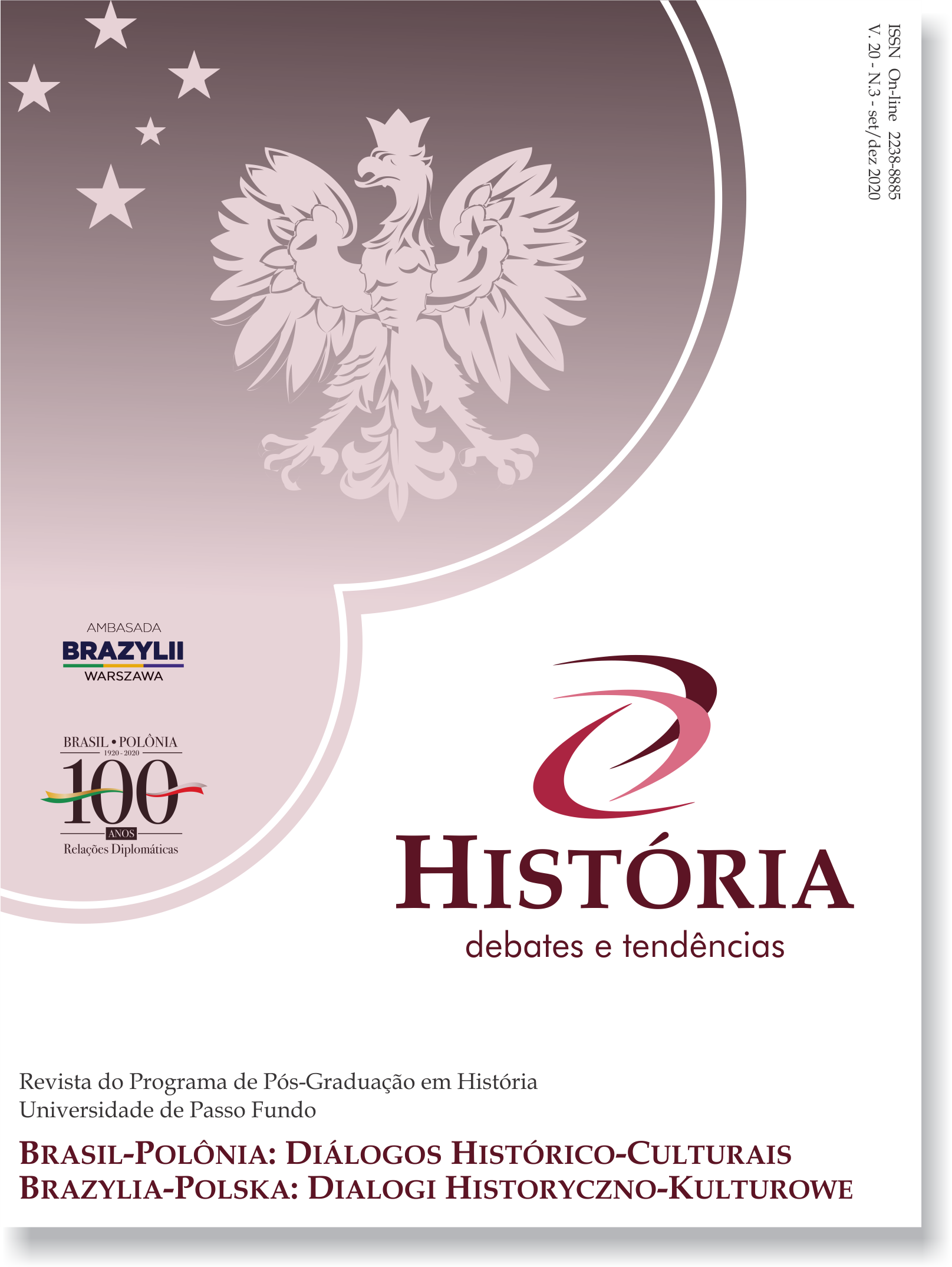Polonity in Brazil: the role of social actors and institutions in the maintenance and / or extinction of cultural heritage
DOI:
https://doi.org/10.5335/hdtv.20n.3.11649Keywords:
Social Actors, Cultural Institutions, Polish Culture, Polonity in BrazilAbstract
After 150 years of big flows of polish immigration to Brazil, we can verify the most different influences of this ethnicity in the Brazilian culture imbricated in different cities and states. The objective of this study is to continue with an analysis regarding the influence of the social actors (or agents) in the maintenance and/or extinction of the different institutions founded by polish people and their descendants in the last decades in Brazil. We could conclude that there are different subjective motivations that drove determined social actor to act in favor of or against the cultural elements of their ethnical group. In a first historical moment, the acting in group through the institutions had a lot of strength - a meaning that changed itself, especially after the period of nationalization in Brazil. In the present, what is expected is that the actor feels part of a network that represents the polonity and, even if they don’t know all the cultural codes of their ethnicity, or don’t want to act in such a participative way, they can influence and collaborate to the maintenance of the cultural patrimony (material and immaterial) in many ways, including the social networks. Therefore, the level of importance of the institutions remains, both to the recreational and leisure purposes and to the legitimate ways of cultural expression of the polish ethnicity.
Downloads
References
FREDER, Schirlei Mari; TRINDADE, Rhuan Targino Zaleski. Organizações polono-brasileiras: origens, constituição jurídica e planos de sucessão. Polonicus: Revista de reflexão Brasil-Polônia, Curitiba, Missão Católica Polonesa no Brasil, ano 7, n. 13, jul./dez. 2016. Disponível em: <https://www.polonicus.com.br/arquivos/pdf-pt-2017-01-10%2013-58-51.pdf>. Acesso em: 27 jul. 2020.
LARAIA, Roque de Barros. Cultura: um conceito antropológico. 21. ed. Rio de Janeiro: Jorge Zahar, 2007.
GÅUCHOWSKI, Kazimierz. Os poloneses no Brasil − Subsídios para o problema da colonização polonesa no Brasil. Porto Alegre: Rodycz & Ordakowski Editores, 2005.
REPÚBLICA DA POLÔNIA. Karta Polaka. Disponível em: <https://www.gov.pl/web/brasil/karta-polaka>. Acesso em: 10 ago. 2020.
RODYCZ, Wilson Carlos. Os imigrantes poloneses da Colônia Lucena – Itaiópolis: se um marreco pisar no gelo ele quebra. Porto Alegre: Rodycz & Ordakowski Editores, 2011.
SAMPAIO, Débora Adriano Sampaio; LOUREIRO, José Mauro Matheus Loureiro;
LIMA, Izabel França de Lima. Memória, patrimônio e inclusão social: um olhar a partir da teoria ator-rede. Revista Thema, v. 14, n. 4, 2017.
VIECHNIESKI, Selma Antonia Pszdzimirski. Tensões na construção identitária polonesa: o caso da Colônia Amola-Faca/Virmond (PR). [recurso eletrônico]. 2. ed. Porto Alegre: Editora Fi, 2020. 219 p.
ZAPAHOWSKI, Geraldo. Entrevista via WhatsApp em agosto de 2020.






